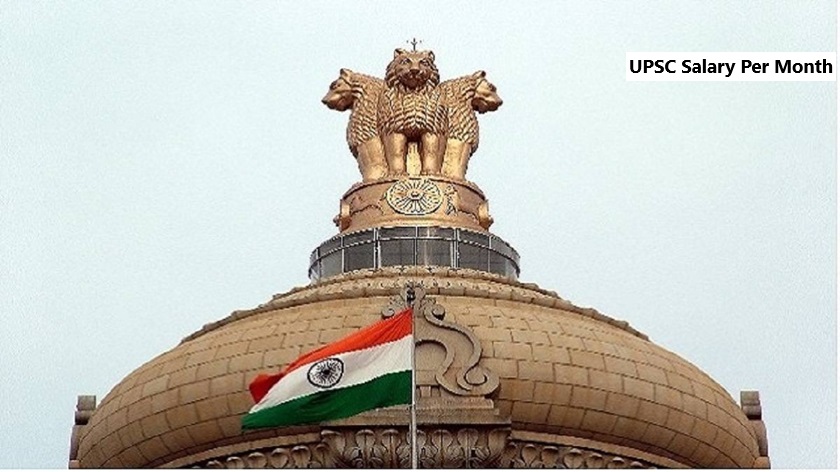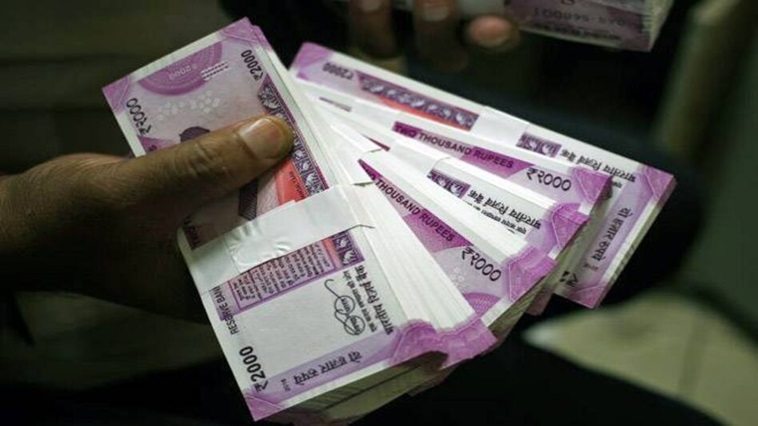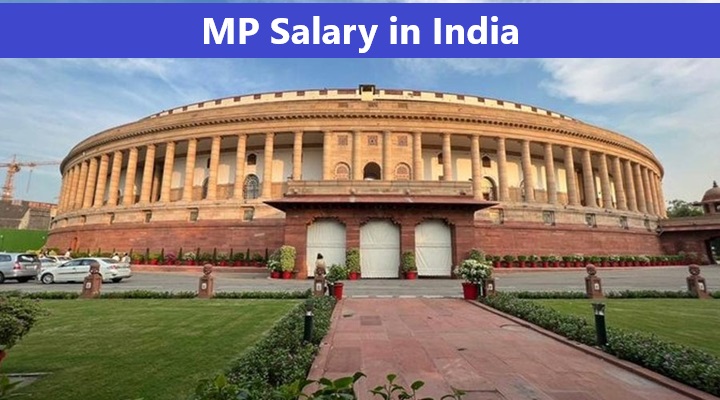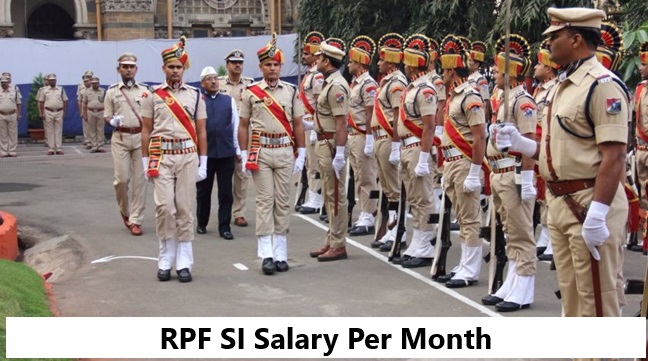Introduction to UPSC Salary Per Month
UPSC Salary Per Month: The Union Public Service Commission (UPSC) is one of India’s premier institutions responsible for recruiting candidates for various civil services of the government, including the Indian Administrative Service (IAS), Indian Foreign Service (IFS), Indian Police Service (IPS), and several other services. This article will provide a comprehensive overview of the UPSC, including the salary structure, the exam details, career prospects, and much more, all explained in simple language.
UPSC Exam Overview
What is the UPSC Exam?
The UPSC exam, also known as the Civil Services Examination (CSE), is conducted annually to select candidates for civil services and various other administrative positions. It is known for its rigorous testing and competitive nature, attracting millions of candidates across India.
UPSC Exam Eligibility
Age Limit: The age limit for the general category candidates is 21-32 years. However, age relaxations are applicable for candidates from OBC (up to 35 years), SC/ST (up to 37 years), and Persons with Disabilities (up to 42 years).
Educational Qualifications: A candidate must hold a Bachelor’s degree from a recognized university or possess an equivalent qualification.
Number of Attempts: General category candidates can attempt the exam up to 6 times, whereas OBC candidates have 9 attempts, and there is no limit for SC/ST candidates.
Exam Stages
The UPSC examination consists of three stages:
- Preliminary Examination (Prelims): This is a screening test comprising two objective-type papers (General Studies and Aptitude Test).
- Main Examination (Mains): This includes nine papers of essay and answer type questions.
- Interview: Also known as the Personality Test, this is the final stage that evaluates a candidate’s suitability for a career in civil service.
UPSC Salary and Benefits
Salary Structure
The salary for UPSC officers varies according to the service they are selected for and their rank. An entry-level IAS officer’s salary typically starts from around INR 56,100 per month and can go up to INR 2,50,000 per month for a Cabinet Secretary.
Perks and Allowances
Apart from the basic salary, UPSC officers receive various allowances such as:
- Dearness Allowance (DA)
- House Rent Allowance (HRA)
- Travel Allowance (TA) These benefits are designed to cover the cost of living and maintain a comfortable standard of life.
Career Progression
Career progression for UPSC officers depends on the service they are in. For example, an IAS officer may start as a Sub-Divisional Magistrate and can progress to become District Magistrate, Divisional Commissioner, and finally reach the level of Cabinet Secretary at the centre.
Demand for UPSC Jobs in India
The demand for civil service jobs remains high due to the prestigious nature of the positions and the significant impact these roles have on society. Every year, millions of candidates apply for the UPSC exam, but only a few thousand succeed, making it one of the most competitive examinations in India.
Retirement Age
The retirement age for most civil servants is 60 years. However, this can vary depending on the specific terms of service and the discretion of the government.
Best Salary Prospects
The highest salaries in the UPSC are often associated with top positions like Cabinet Secretary, who commands a salary of about INR 2,50,000 per month. However, even entry-level positions offer competitive salaries and raise prospects as officers climb the career ladder.
Conclusion to UPSC Salary Per Month
A career in UPSC is not only financially rewarding but also offers a chance to serve the public and make a significant impact on the development of the country. It provides a stable career with numerous opportunities for growth both professionally and personally. The preparation for UPSC exams, while challenging, can open the door to a fulfilling career in the civil services.
More Information
For those interested in pursuing a career in the UPSC, it is advisable to keep updated with the latest examination notifications and changes in the syllabus, which are regularly posted on the official UPSC website. Additionally, joining a coaching center or seeking guidance from previous year’s successful candidates can greatly enhance one’s chances of success.
This comprehensive look at the UPSC should serve as a strong foundation for anyone looking to understand or enter this prestigious field in India.
Frequently Asked Questions About UPSC
1. What is UPSC?
The Union Public Service Commission (UPSC) conducts exams for recruitment to various civil services and other government positions in India.
2. Who can apply for the UPSC exam?
Anyone who is a graduate, between the ages of 21 and 32, and meets other specific criteria depending on their category (OBC, SC/ST, PwD) can apply.
3. How many attempts can I make for the UPSC exam?
General candidates can attempt the exam 6 times, OBC candidates 9 times, and SC/ST candidates have unlimited attempts until they reach the age limit.
4. What is the structure of the UPSC exam?
The UPSC exam consists of three stages: Preliminary, Main, and the Interview or Personality Test.
5. How much does an IAS officer earn per month?
The starting salary for an IAS officer is about INR 56,100 per month, excluding allowances.
6. What are the allowances given to UPSC officers?
UPSC officers receive various allowances such as Dearness Allowance, House Rent Allowance, and Travel Allowance.
7. What is the highest post an IAS officer can hold?
The highest post an IAS officer can aspire to is that of a Cabinet Secretary in the Government of India.
8. How competitive is the UPSC exam?
The UPSC exam is extremely competitive with only a few thousand of the millions of applicants passing each year.
9. What is the retirement age for UPSC officers?
The retirement age for most UPSC officers is 60 years.
10. How can I prepare for the UPSC exam?
Preparation strategies include studying the provided syllabus, taking mock tests, and possibly joining a coaching institute.
11. Are there any age relaxations for the UPSC exam?
Yes, age relaxations are available for candidates from reserved categories.
12. Can a person from any educational background apply for UPSC?
Yes, as long as the person holds a Bachelor’s degree from a recognized university.
13. What is the demand for UPSC jobs in India?
UPSC jobs are highly sought after due to their prestigious nature and impact on public administration.
14. What happens after retirement for UPSC officers?
After retirement, UPSC officers often receive pensions and may take up advisory roles or other responsibilities in the government or private sector.
15. Can I apply for UPSC while in my final year of college?
Yes, final year students can apply, provided they submit proof of passing before the mains exam.
16. Is there any physical requirement for the UPSC exam?
Certain positions, especially in the IPS, require physical standards to be met, details of which are provided in the notification.
17. How often is the UPSC exam held?
The UPSC exam is conducted once every year.
18. What is the role of an IAS officer?
An IAS officer handles administrative responsibilities, policy formulation, and implementation, public funds management, and crisis management among other tasks.
19. How long does it take to prepare for the UPSC exam?
Preparation time varies by individual but generally takes at least one year of dedicated study.
20. What are the best resources for UPSC exam preparation?
Recommended resources include NCERT textbooks, newspapers, standard reference books, and online materials.
21. Can a non-Indian apply for the UPSC exam?
No, only Indian citizens are eligible to apply for the UPSC exam.
22. What is the success rate in the UPSC exam?
The success rate is very low, with less than 1% of applicants ultimately clearing the exam.
23. How are UPSC interviews conducted?
UPSC interviews test a candidate’s personality, understanding of issues, problem-solving skills, and suitability for a career in the civil services.
24. What is the role of a UPSC coach?
A UPSC coach can provide guidance, resources, and strategies to improve a candidate’s chances of success.
25. Are there any special preparations for the interview stage?
Preparation for the interview stage includes mock interviews, staying updated with current affairs, and understanding one’s detailed application form (DAF).











Leave a Reply